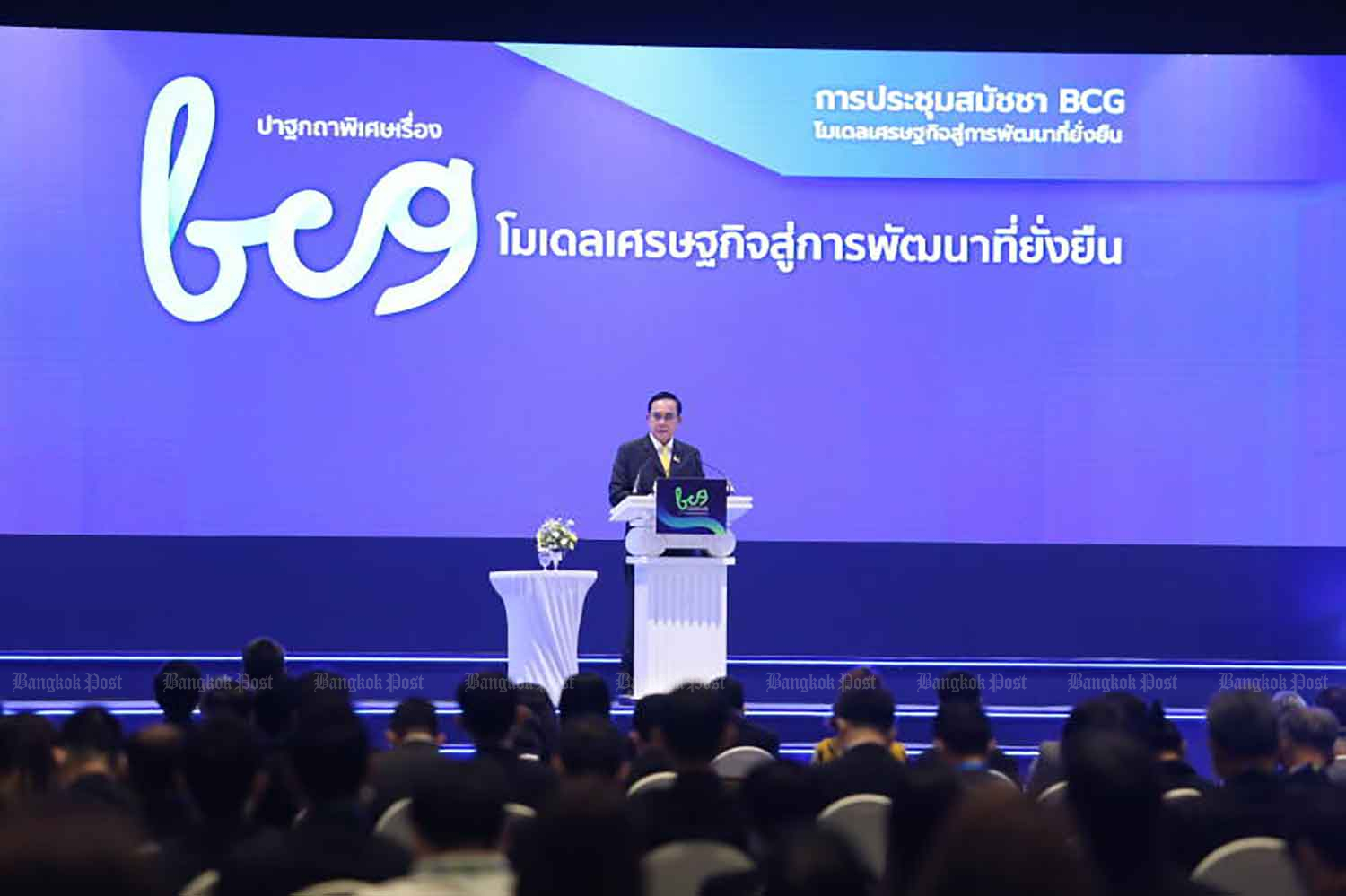
Thailand has to invest 820 billion baht over the next five years if the country is to follow the principle of the bio-circular green (BCG) economy to rev up eco-friendly businesses and innovations, says Krungthai Compass.
Investment in BCG-related projects is estimated to increase Thailand's tepid investment ratio compared to GDP. In 2018, Thailand's investment rate was registered at 25.2% of GDP, a considerable plunge from 42.5% in the mid-1990s.
Thailand's investment ratio to GDP of 25.2% is higher compared to Malaysia's 23.9%, but lower than Vietnam's 26.3% and South Korea's 31.5%.
In 2024, Thailand's investment ratio is expected to be 24% of GDP, compared with Malaysia's 23.1%, Vietnam's 27.1% and South Korea's 29.9%, says the research house under Krungthai Bank.
The government has set the framework of a BCG economy as a national agenda, in line with the global trend, while the Board of Investment offers incentives for such investment projects.
At the same time, local large corporates, particularly SCG Plc, PTT Group and Charoen Pokphand Group have embarked on this development trend.
Given how the development of Thailand's BCG economy is aligned with global peers, the country's investment outlook in BCG-related projects is expected to gradually become clearer over the next five years.
Ministries, whose duties are related to the BCG economy, have continued to explore and implement regulations and incentives in preparation for this development framework, said Phacharaphot Nuntramas, chief economist at Krungthai Compass.

"Under this scenario, BCG-related investments worth 820 billion baht are expected to transpire over the next five years. Apart from how this will raise the country's investment ratio to GDP, it will also improve exports and competitiveness," said Mr Phacharaphot.
Both the public and private sectors are recommended to gradually apply the principal framework of the BCG economy to work routines and business practices, similar to how they have applied the ISO industrial standard to be accordance with the global standard.
Thailand's four key export-related sectors are agricultural and food; automotive and parts; chemicals, rubber, and plastic; and energy, said Chaiyasit Anuchitworawong, senior analyst at Krungthai Compass.
It is essential that these key export sectors adopt the principal framework of the BCG economy because they represent 50% of annual export value.
Export value of the agricultural and food sector is 1.2 trillion baht, while the shipment value for autos and parts is 9.2 trillion and 9.6 trillion for chemical, rubber and plastic exports. The energy sector's export value is 2 trillion baht.